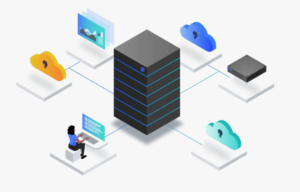
Businesses are constantly seeking ways to harness the full potential of their data. While data management tools are essential for organizing and analyzing vast amounts of information, there’s one key element that truly elevates their impact: data governance.
By implementing clear rules and processes for managing data, organizations can ensure that their tools not only store and analyze data but also maintain its accuracy, security, and consistency.
In this article, we’ll explore how data governance amplifies the effectiveness of data management tools, empowering your business to unlock valuable insights, improve decision-making, and drive sustainable growth.
Let’s explore how data governance is the secret ingredient that turns good data into great results.
1. The Role of Data Governance in Improving Data Quality
Data governance is crucial for ensuring the quality of data used in big data management tools. Establishing clear policies and standards ensures data is accurate, consistent, and reliable, enabling tools to generate meaningful insights that support better decision-making.
According to a report,
The global data governance market, valued at USD 4.15 billion in 2024, is projected to reach USD 23.13 billion by 2033, growing at a CAGR of 21.03%.
For example, imagine a retail company with disorganized customer data. Without governance, duplicate entries and incorrect details could lead to flawed analytics.
However, with proper governance, the data is cleaned and standardized, making it valuable for tools to use. This ensures that the insights derived are both actionable and trustworthy.
2. How Data Governance Improves Data Accessibility
Data governance plays a crucial role in ensuring that organizations can access the right data when they need it without compromising security.
A must-know fact: More than 402.74 million terabytes of data are created each day. To manage this data you require:
- Proper Access Management
Data governance improves accessibility by ensuring that only authorized individuals can access specific datasets. This creates a balance between security and ease of use, reducing the risk of breaches.
- Faster Data Retrieval
Governance frameworks categorize and organize data, making it easier for tools and users to locate information. Quick access to accurate data saves time and boosts productivity.
- Seamless Collaboration
With well-governed data, teams across departments can collaborate more effectively. Everyone can access consistent, up-to-date information, reducing misunderstandings and duplication of effort.
3. The Impact of Data Governance on Data Security
Data security is one of the most critical benefits of data governance. It ensures that sensitive information is protected through a combination of policies, tools, and practices. By reducing vulnerabilities, governance safeguards your organization’s reputation and resources.
Here’s how data governance enhances security:
- Role-Based Access Control: Ensures that only relevant personnel can access specific data.
- Data Encryption: Protects sensitive information during storage and transfer.
- Audit Logs: Tracks changes to data, providing transparency and accountability.
- Regulatory Compliance: Ensures adherence to legal standards, reducing penalties.
- Security Updates: Keeps data management tools equipped with the latest protection measures.
These measures create a strong security framework, ensuring your tools operate in a safe environment.
4. Enhancing Data Usability Through Governance
Data governance plays a crucial role in improving the overall usability of data by making it easier to access, integrate, and analyze. It ensures that data is organized, consistent, and available across the entire organization.
Eliminating Data Silos
- Data silos, where information is stored in isolated systems, hinder integration and limit efficiency. With effective data governance, these silos are eliminated, enabling a unified ecosystem that supports seamless big data management and improved collaboration.
Ensuring Data Consistency
- Governed data is standardized, ensuring that analytics and reporting tools provide accurate results. This eliminates inconsistencies and builds trust in the data.
Supporting Advanced Analytics
- High-quality and well-governed data enables tools to perform advanced analytics, providing deeper insights that can drive innovation and competitiveness.
5. The Role of Governance in Scalability and Growth
As organizations grow, so does their data. Data governance ensures that data management tools can handle increasing volumes and complexity without compromising efficiency.
Here are five ways governance supports scalability:
- Standardized Processes: Establishes repeatable workflows for managing data growth.
- Flexibility: Adapts governance frameworks to accommodate new tools and systems.
- Integration: Facilitates the smooth integration of data from diverse sources.
- Quality Control: Ensures data remains accurate and useful, even as it scales.
- Future-Proofing: Prepares systems for evolving technologies and business needs.
By creating a scalable framework, governance helps your organization handle expansion with confidence.
6. Supporting Decision-Making with Governed Data
Data-driven decisions are only as good as the data they rely on. Data governance ensures that information used by management tools is accurate, timely, and relevant, enabling better decision-making.
For instance, a logistics company with governed data can predict delivery delays and adjust schedules proactively. Without governance, the same data might be incomplete or outdated, leading to poor planning.
By aligning governance with tools, organizations can make informed decisions that drive efficiency and growth.
7. Aligning Governance with Regulatory Requirements
Compliance with data-related regulations is essential to avoid penalties and maintain stakeholder trust. Effective data governance, combined with robust big data management practices, ensures transparency, accountability, and adherence to regulatory standards.
Your data management tools benefit by functioning within a legally compliant framework, reducing risks and ensuring ethical data use. Furthermore, adherence to regulations can enhance customer confidence, turning compliance into a competitive advantage.
Can Data Management Tools Replace Governance?
No, data management tools and governance work together.
While tools help store, organize, and analyze data, governance sets the rules and frameworks they follow.
Without governance, tools may lack the structure needed to manage data effectively.
Conclusion
Data governance is the foundation that maximizes the impact of data management tools. It improves data quality, enhances security, ensures accessibility, and supports scalability. In the realm of big data management, governance ensures that even vast and complex datasets are organized, secure, and reliable.
Together, governance and tools create a powerful ecosystem for managing data effectively. By prioritizing governance, your organization can achieve better decision-making, regulatory compliance, and sustainable growth. Combining strong governance with the right tools is the key to unlocking the full potential of your data.







